Spotlight on 3 HBMA Ethics Committee Members
HBMA’s new Ethics Committee is officially up and running. Below, three members of the committee discuss the biggest ethics concerns in revenue cycle management and what they are excited about for the future of the committee.
 Elizabeth Staple Elizabeth Staple
President, Chief Compliance Officer & In-House Counsel
MultiMed Billing Service Inc.
Why did you join the new HBMA Ethics Committee?
I joined the committee because I was looking for a way to become more involved in HBMA, and it was a good fit with my background and experience. I’m also very pragmatic and enjoy the challenge of balancing the sometimes hypothetical world of ethics with business realities.
What are the biggest ethics concerns in this field?
Ethics is often referred to as the space between the rules—where there is no guiding principle directly on point and you need to make a subjective determination. Because the life sciences industry is so broad and the rules have to cover so much, it is more often the case than not that judgment—not edicts—carries the day. It’s always easier to follow a rule than to try and interpret it, especially for non-lawyers. I also think our entire industry is feeling the strain of reimbursement challenges. In those situations, there can be tremendous pressure to make the numbers work, and it takes a great deal of buy-in to ethical principles to counterbalance that.
At this point, the committee is still very new, but what are you most excited about to discuss in the future?
It’s not the “what” but the “how” of our discussions that excites me. Our members are from very different professional backgrounds, and even from our preliminary meetings, it’s clear that those yield unique perspectives, approaches, and areas of expertise. It’s very helpful to be reminded how different stakeholders approach an issue, and I think this will be an excellent reminder to take a global view in my own work.
 Kyle Tucker Kyle Tucker
President, Dexios Radiology Billing
Why did you join the new HBMA Ethics Committee?
It seems to me that far too often billing companies have a reputation akin to used car dealers with the medical community. This is not because of the majority of the people in the field but a minority who make the rest look bad. We should have reputations similar to CPAs because we are performing similar functions. I would like to help us get there.
What are the biggest ethics concerns in this field?
My primary concern is raising the reputation of our field and setting standards for the field that will allow that to occur. Ethics in our field should be no less rigorous than for the medical community we serve.
At this point, the committee is still very new, but what are you most excited about to discuss in the future?
I am very interested in discussing a program similar to the HBMA compliance program, which will create an ethics certification for RCM companies to show that they following the highest levels of integrity in sales and operations in the industry.
 Landon Tooke Landon Tooke
President, Chief Operating Officer & Chief Compliance Officer
Impact Healthcare Solutions
Why did you join the new HBMA Ethics Committee?
Healthcare is a challenging industry with complex legal, regulatory, and professional demands. The HBMA Ethics Committee provides a means for the organization to address value conflicts within the association and its membership. Participating as a committee member offers an opportunity to serve as an advisor and educator in the areas of compliance and ethics.
What are the biggest ethics concerns in this field?
I believe the most significant ethical concern in this field involves value conflicts related to service integrity. The question is whether we, as service providers, are willing or determined to make unethical sacrifices for the benefit of our bottom line, thereby increasing costs, risk, or both for our customers and their customers, the patients. An example often encountered is the failure to properly implement risk identification tools and risk mitigation strategies to protect customer data in exchange for the benefit of lowering security costs.
At this point, the committee is still very new, but what are you most excited about to discuss in the future?
I look forward to discussions of how our organizations will look to innovate and align our business practices with new requirements of a continually evolving regulatory environment while advancing service and support for our customers and their patients.

|


 Kyle Tucker
Kyle Tucker Landon Tooke
Landon Tooke